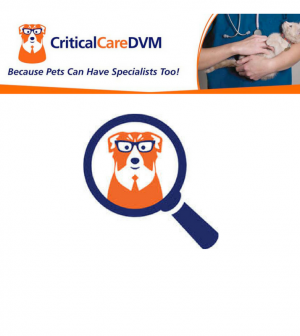- Do you subscribe to Dharma Dog Training’s Newsletter? You should.
- A Unique Campaign from The Humane Society of the United States
- Rabid bats in Omaha- Stay safe, prepared with these tips
- Springtime Activities in Omaha
- Mill Dog Monthly from Bailing Out Benji
- World Spay Day, Legislative Alert in Nebraska
- Attend the Nebraska Rescue Council’s monthly meeting this Saturday
- Five Hard-to-Ignore Reasons to Adopt!
- Paws in Pink to Benefit Breast Cancer Foundation
- VCA, Inc. Acquires MidWest Vet Specialists from Kansas State University
Preventative Care is essential for your cats and dogs

Dr. Christopher Byers, DVM at Critical Care in Omaha, has written the following preventative care article and it appears on his blog. Dr. Byers has been a wonderful resource for our Veterinarians page and provides necessary information and service to pet parents all over the area. Thanks to the doc for this essential knowledge- don’t forget how important it is to prevent illness in your animals by getting routine check-ups and services from Critical Care and other great vets in town.
Preventive Care – What is it?
Preventive care is the concept of focusing on the prevention of diseases and maintenance of proper health rather than treating health conditions after they have progressed. In veterinary medicine, preventive care for dogs and cats most commonly includes:
- Wellness examinations
- Dental care
- Vaccinations
- Heartworm, flea, and tick prevention
- Nutrition assessment
These preventive care components can prevent diseases that are both life-threatening and expensive to diagnose and treat.
Preventive Care – Why is it important?
Many pet parents come to me with sick and dying pets. After evaluating their pet’s history and performing a complete physical examination, I develop a plan for that fur baby – tests and treatments I believe are most appropriate to best help that patient. Understandably this plan has financial implications for families, and unfortunately some families are simply not able to heed my recommendations due to fiscal constraints.
Preventive care helps identify diseases early in their courses, which can help reduce the need for hospitalization in an ICU.
Some of these veterinary healthcare costs could have been much less if medical attention had been provided earlier. Please don’t interpret this statement as judgement against families and/or a pet’s primary care team. Yet it is true the cost of prevention is a fraction of the cost of treating a disease once it has become more advanced. Furthermore early diagnosis and/or intervention of developing health issues unquestionably increases the likelihood of successful outcomes. Wellness examinations are an essential component of preventive healthcare. Just as regular visits with your personal physician is important, so too are routine visits to a primary care doctor important for dogs and cats. If a veterinarian can detect a problem in its early stages, s/he will be more likely able to treat it with less expense and better success.
Indoor cats benefit from preventive care just as much as their outdoor counterparts.
Sadly for various reasons, some pet parents in the United States have lost sight of the importance of preventive healthcare. Commonly parents on indoor cats don’t believe their pets need to be evaluated by veterinarians because their fur babies don’t go outside. They aren’t exposed to ailments that could make them sick so they must not need routine evaluations. Unfortunately they forget or don’t know illnesses like hyperthyroidism, acquired heart diseases, and chronic kidney disease don’t discriminate between indoor and outdoor cats. Identifying and treating these types of health issues early in their courses goes a long way in prolonging the highest possible quality of life. More frustratingly some people believe veterinarians recommend preventive healthcare measures simply to make more money. I won’t pretend to understand this fallacy, and will simply counter with the old adage from Benjamin Franklin:
“An ounce of prevention is worth a pound of cure.”
If veterinarians were truly only in the profession to make money, we would let our patients get sick and treat them only when testing and therapeutic interventions were much more costly to families.
The take-away about preventive care in dogs and cats…
When it comes to treating potentially serious health conditions, early diagnosis is key. In most instances the earlier one begins to treat a condition, the greater the chance for treatment success. Please heed the recommendations of your pet’s primary care team, for they are made with your pet’s best interest at heart. Following them truly could mean a world of difference to your fur baby!
To find a board-certified veterinary internal medicine specialist, please visit the American College of Veterinary Internal Medicine.
To find a board-certified veterinary emergency and critical care specialist, please visit the American College of Veterinary Emergency and Critical Care.
Related Posts
Latest News
-
3 Tips for Pet Owners on Training Rescue Dogs
Owning a rescue dog can take some work compared to...
- Posted 2 weeks ago
- 0
-
Choosing the Right Pet for Your Lifestyle
Are you thinking about getting a pet but unsure what...
- Posted 4 weeks ago
- 0
-
How to Make Your Rescue Pet as Comfortable as Possible
Did you bring home a new pet from a shelter...
- Posted 2 months ago
- 0
-
How Having A Pet Can Change Your Life
Having a pet can open your heart in ways that...
- Posted 7 months ago
- 0
-
How To Improve The Life Of Your Senior Pet
Do you have an elderly fur baby and want to...
- Posted 7 months ago
- 0
-
Springtime Activities To Enjoy With Your Furry Friends
Are you preparing for warmer weather and want some ideas...
- Posted 8 months ago
- 0
-
Pros And Cons Of Microchipping Your Pets
Have you considered whether your pets should be microchipped and...
- Posted 9 months ago
- 0























You must be logged in to post a comment Login